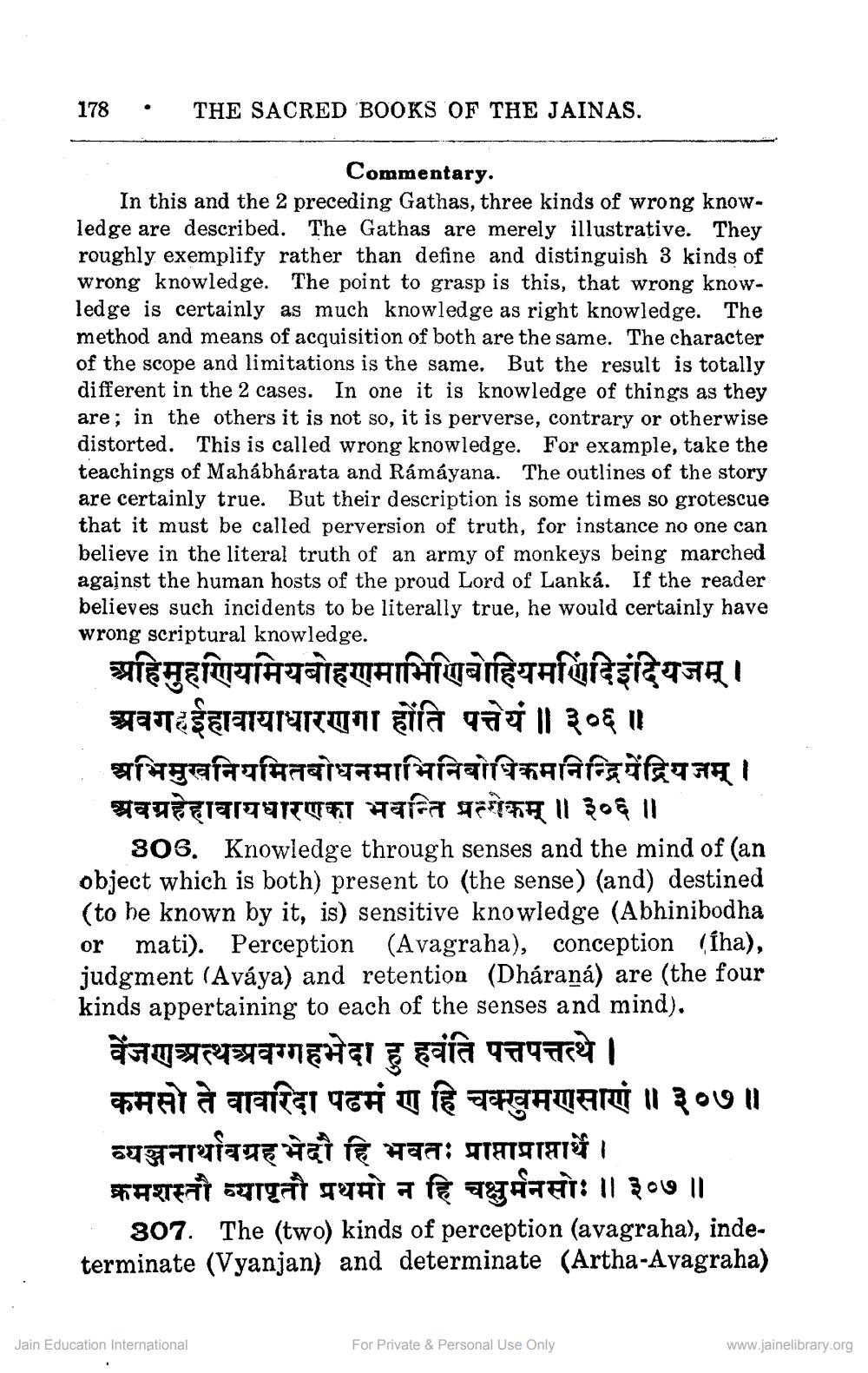________________
178 •
THE SACRED BOOKS OF THE JAINAS.
Commentary. In this and the 2 preceding Gathas, three kinds of wrong knowledge are described. The Gathas are merely illustrative. They roughly exemplify rather than define and distinguish 3 kinds of wrong knowledge. The point to grasp is this, that wrong knowledge is certainly as much knowledge as right knowledge. The method and means of acquisition of both are the same. The character of the scope and limitations is the same. But the result is totally different in the 2 cases. In one it is knowledge of things as they are; in the others it is not so, it is perverse, contrary or otherwise distorted. This is called wrong knowledge. For example, take the teachings of Mahabharata and Rámáyana. The outlines of the story are certainly true. But their description is some times so grotescue that it must be called perversion of truth, for instance no one can believe in the literal truth of an army of monkeys being marched against the human hosts of the proud Lord of Lanká. If the reader believes such incidents to be literally true, he would certainly have wrong scriptural knowledge.
अहिमुहणियमियबोहणमाभिणिबोहियमणिदिइंदियजम् । अवगहईहावायाधारणगा होति पत्तेयं ॥ ३०६ ॥ अभिमुखनियमितबोधनमाभिनिबोधिकमनिन्द्रियेंद्रियजम् । अवग्रहेहावायधारणका भवन्ति प्रत्येकम् ॥ ३०६ ॥
806. Knowledge through senses and the mind of (an object which is both) present to (the sense) (and) destined (to be known by it, is) sensitive knowledge (Abhinibodha or mati). Perception (Avagraha), conception (sha), judgment (Avaya) and retention (Dharanā) are (the four kinds appertaining to each of the senses and mind). वेंजणअत्थअवग्गहभेदा हु हवंति पत्तपत्तत्थे । कमसो ते वावरिदा पढमंण हि चक्खुमणसाणं ॥३०७॥ व्यञ्जनार्थावग्रह भेदौ हि भवतः प्राप्ताप्राप्तार्थे । क्रमशस्तौ व्यापृतौ प्रथमो न हि चक्षुर्मनसोः ॥ ३०७ ॥
807. The (two) kinds of perception (avagraha), indeterminate (Vyanjan) and determinate (Artha-Avagraha)
Jain Education International
For Private & Personal Use Only
www.jainelibrary.org




